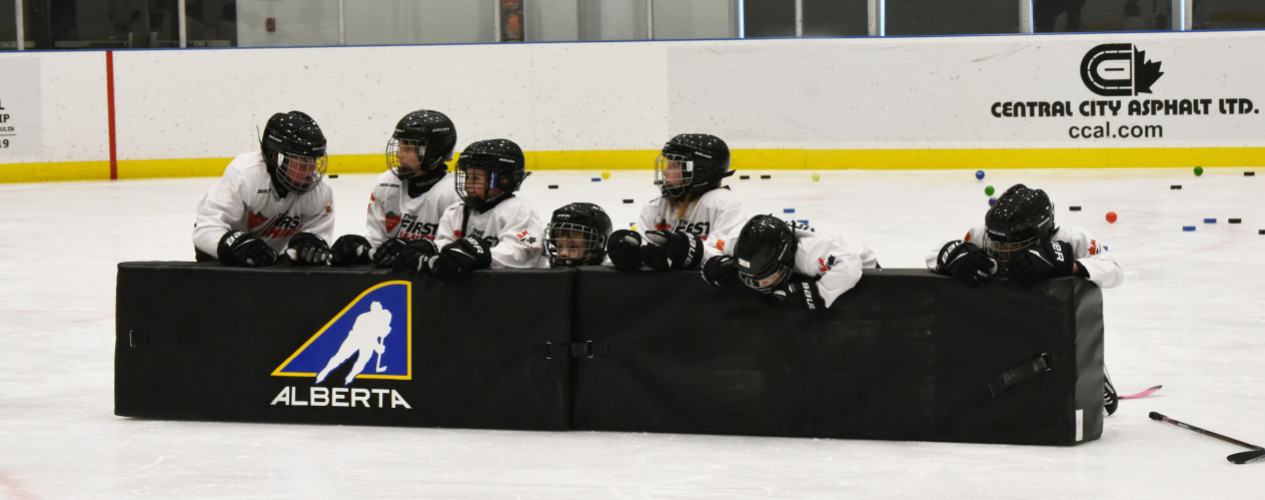Your Child’s Development
Intro to Hockey (U7 and U9)
Hockey Canada and Hockey Alberta have developed age appropriate programming to encourage the growth of foundational skills for young players in hockey. Minor hockey associations and coaches lead the implementation of the Intro to Hockey (U7 and U9) programs with the assistance of volunteers, parents and others associated with hockey. The programming must provide opportunities for a wide range of people to get involved to improve the quality of the hockey experience through sound instruction and enjoyable play.
The goals and objectives of Intro to Hockey programming are to:
- Teach the basic skills of hockey so players can enjoy the game.
- Assist in the development and enhancement of physical literacy and basic motor patterns.
- Deliver a program that is age appropriate for the size, skill and age of the players.
- Encourage the aspects of fitness, fair play and co-operation while having fun playing the game.
- The main goal is to make the beginner’s first impression of hockey a good one! When players get started on a positive note, they automatically enjoy the game and usually go on to have fun playing hockey for many years.
HOCKEY CANADA TIMBITS U7 PROGRAM>
ACTIVE FOR LIFE ARTICLE - SMALL ICE BETTER FOR KIDS>
As the parent of a player within the minor hockey system in Alberta, there is a lifetime of opportunity for you and your child(ren) to stay involved in our great sport for many years. Regardless of the age of your child, there is a level of hockey where s/he can play, and enjoy the benefits of being a hockey participant.
The player pathway section provides an overview of the amateur hockey structure, starting with our youngest players at the Intro to Hockey level, and progressing to student/athlete opportunities and senior hockey outlining how your child can continue playing hockey right into adulthood.
Articles from Active for Life
Active for Life is a Canadian not-for-profit social initiative created to help parents give their children the right start in life through the development of physical literacy. For more information on the definition of physical literacy, and how parents can make a difference in their children’s lives, go to the Active for Life website;
You can also check out the following articles from Active for Life, which provide important information about your child’s development:
Trainability: How far can training and practice take your child?
The human body adapts to exercise. Work your muscles and they get stronger. Run regularly and your lungs get faster at absorbing oxygen into your blood. This is how your body “responds” to training. But here’s something you might not know: Different people respond differently to the exact same training, kids included.
Talent Development vs. Talent Identification
As talent development programs around the world are showing, it isn’t possible to even predict future “talent” as measured in strength, speed, skill, and decision-making until kids are in their teens; as a general rule, between 14 and 20 years.
Specialization: What Does It Really Mean?
These days, you hear a lot of discussion about kids specializing in one sport or one physical activity too early. Lots of problems come out of this: burnout, overuse injuries, mental and emotional fatigue, dropout from activity, and more.

















